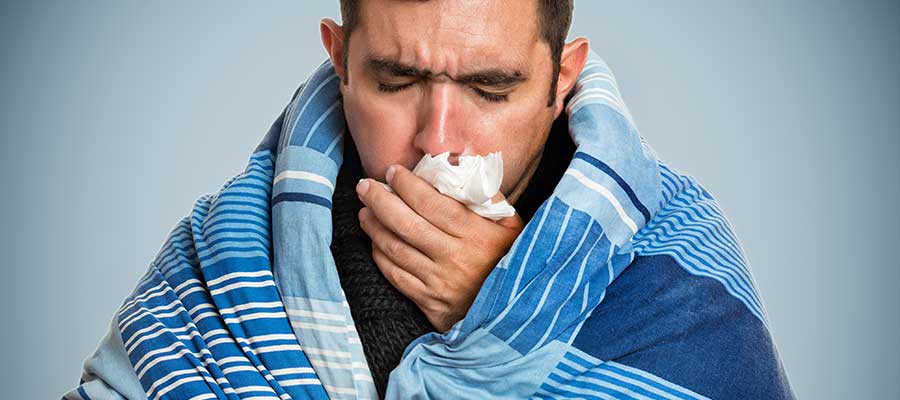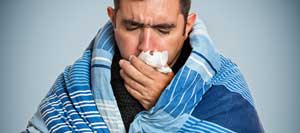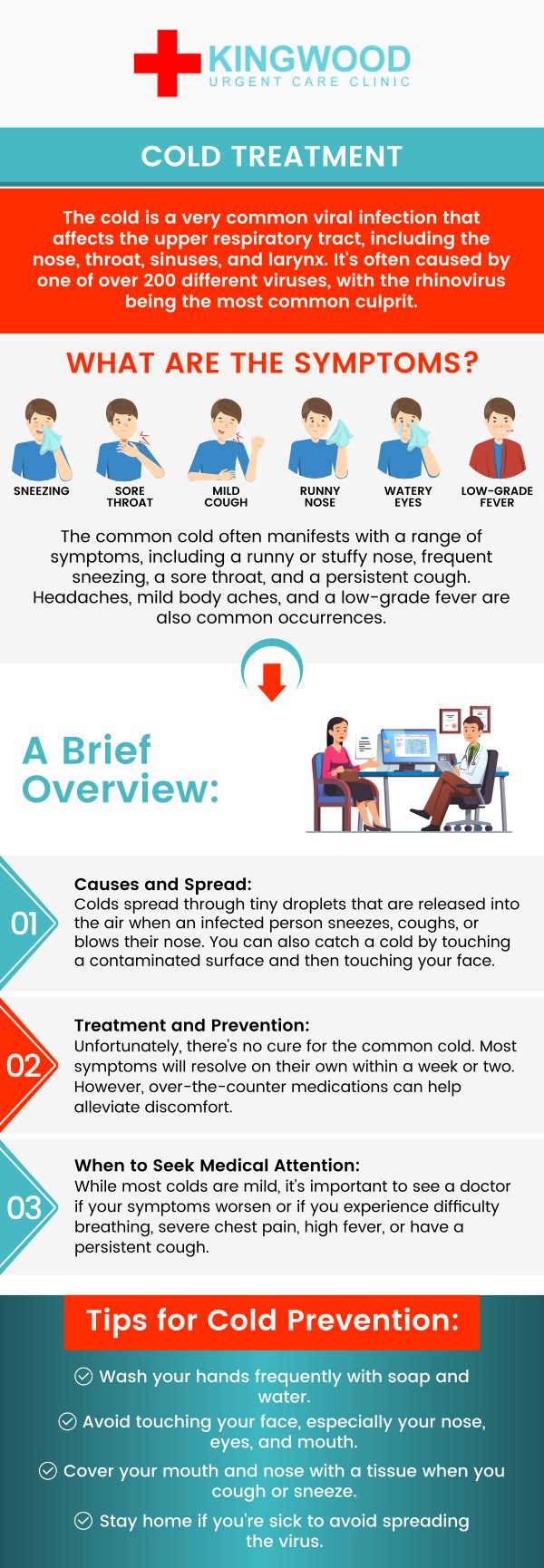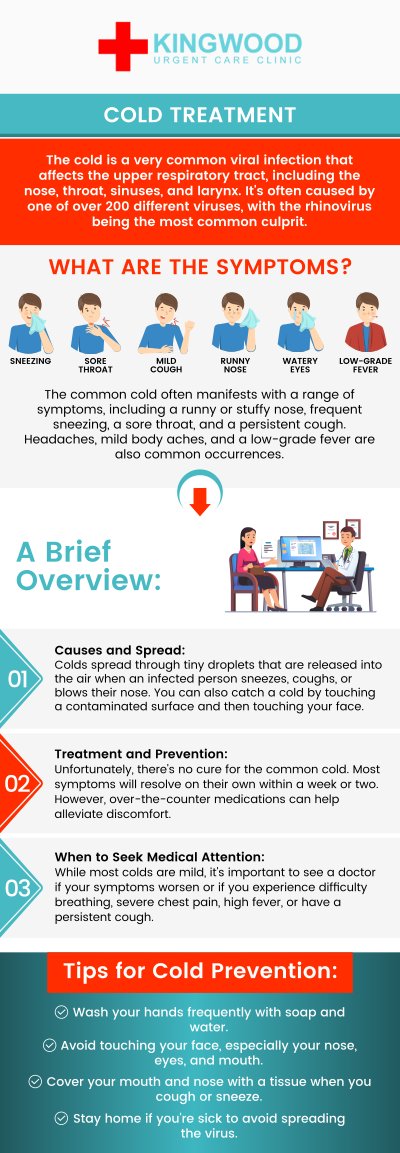Cold Treatment Doctor in Kingwood, TX
Different types of viruses can cause the common cold. The illness is usually harmless, and symptoms go away in two weeks on average. Sneezing, nasal congestion, and a runny nose are the most frequent symptoms of the common cold. In addition, you might be experiencing headaches, sore throats, and coughs. Visit our experienced professionals at Kingwood Urgent Care, TX. For more information, contact us or simply walk in. We are conveniently located at 2601 W Lake Houston Pkwy Kingwood, TX 77339.




Table of Contents:
What day are cold symptoms the worst?
Does vitamin C help with colds?
What foods should I avoid with a cold?
Is there any way to shorten a cold?
During cold and flu time, the threat of catching a virus can be concerning and also annoying at times. No one wants to come down with any sort of illness, and the common cold is no exception with the uncomfortable symptoms that can last for several days or longer.
The common cold actually progresses through three stages, with each stage typically lasting anywhere from 1 to 4 days. The second stage (most likely occurs during days 4 to 7 of the cold) is when the virus will be at its peak regarding intensity, meaning the symptoms will likely also peak at this point. Any aching or muscle soreness, congestion, coughing, and fever will likely feel at its worst at this point as your body is trying to fight off the aggressive virus. The fever is essential in helping your immune system fight the virus, often resulting in chills and fatigue, making this point of the cold most likely feeling the worst. At this point, you will also still be contagious since the symptoms will still be active, meaning you should be staying home and resting as much as possible.
Regularly having enough essential vitamins and minerals is vital in maintaining your health, with many people taking vitamin supplements to ensure that they are able to maintain healthy levels of nutrients. Taking these vitamins will not typically prevent the body from contracting illnesses, but maintaining good general health allows your body and immune system to more efficiently fight off bacteria and viruses. Vitamin C is very well known for being helpful during cold and flu season, with many people believing that they are less likely to contract an illness if they take plenty of vitamin C supplements. However, taking vitamin C will not prevent the contraction of colds, but it can help the body to fight off the cold, often shortening the amount of time that you are ill and even lessening the severity of the symptoms. It is important to make sure you are taking these essential vitamins regularly, and not just waiting until you have cold symptoms as that will be too late to have any effect on your cold.
When suffering from a cold, it can be difficult to determine what food to eat when you don’t feel like cooking or may not have an appetite. There are some foods that can actually lead to worsening symptoms that should be avoided when possible. If you do have an appetite, it is important to make sure that you are consuming foods that are high in nutrients and will not lead to further dehydration. Specifically, foods or beverages to avoid include:
– Alcohol as it negatively affects your immune system and causes dehydration;
– Processed or fatty foods can be more difficult to digest and typically have fewer nutrients;
– Dairy contains lactose, which is a type of sugar that can cause digestive problems in many people, especially if any of the symptoms are gastrointestinal-related;
– Simple sugars such as candy or sweetened beverages can lead to diarrhea.
Many patients will also opt to avoid any foods that would further irritate a sore throat, including scratchy food such as potato chips or foods that are acidic such as some raw fruits and fruit juices.
While there is still no concrete way to cure the common cold, there are many things that you can do to support your body’s ability to recover, shortening the amount of time it takes for you to feel better and get over the cold. These tips include getting plenty of rest, staying well-hydrated, and managing symptoms so that you can increase comfort during the illness, resulting in an easier time sleeping and resting. Many patients will be recommended to take over-the-counter medications such as decongestants, painkillers, antihistamines, or cough suppressants to increase comfort during the recovery process. Drinking plenty of water will help to prevent dehydration, which will minimize symptoms a bit as well and support a healthy immune system but can also help to loosen up some congestion in the nasal passages and chest, allowing for easier breathing and sleeping.
For more information, contact us or simply walk-in for immediate care for children and adults. We serve patients from Kingwood TX, Huffman TX, Atascocita TX, Humble TX, Porter TX, New Caney TX, Houston TX, Crosby TX, Dayton TX, Mont Belvieu TX and Spring TX.






